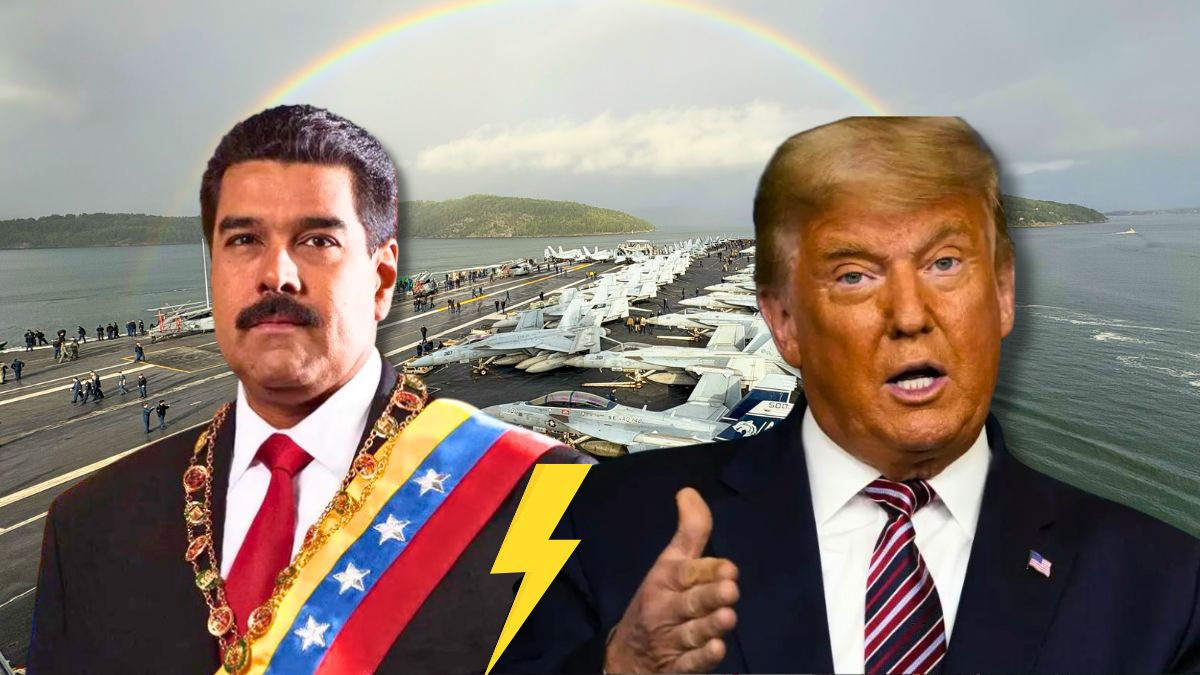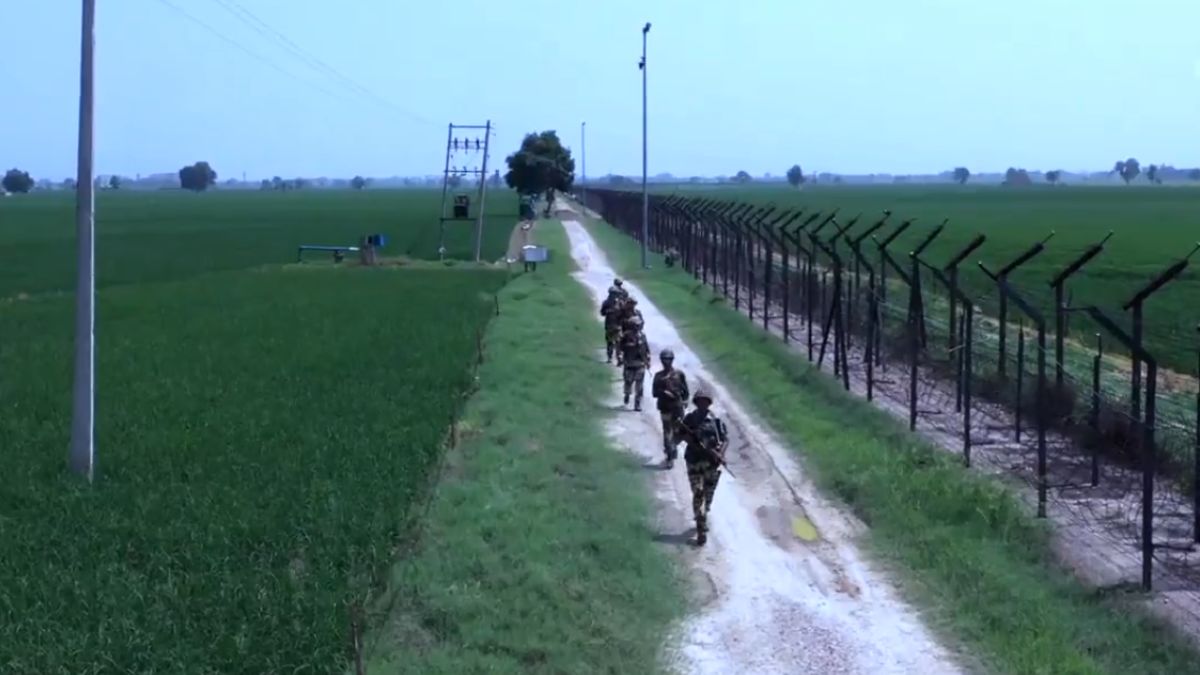US-Venezuela Tensions Intensify As Trump Sends World’s Largest Warship To Caribbean, Maduro Retorts

The aircraft carrier USS Gerald R Ford has been sent to the Caribbean. Image courtesy: RNA
Donald Trump’s second term as the President of the United States is anything but usual. Rather, it is marked by global head turning events and updates. While it is fighting a tariff war with a number of countries, the US seems to be readying for a potential face off with Venezuela, and the recent military buildup is an indication of the same.
For around two months now, there has been a marked rise in US military’s force of warships, fighter jets, bombers, marines, drones and spy planes in the Caribbean Sea. This is the largest deployment there for decades. Further, US President Trump has authorised the deployment of the CIA to Venezuela.
Adding further fuel to these is the deployment of the world’s largest aircraft carrier – USS Gerald R Ford – which is being sent to the region, as Trump weighs military action in the Latin American country.
USS Gerald R Ford in Venezuela: Why has the US deployed its most powerful warship?
A new geopolitical flashpoint is emerging in the Caribbean, as Venezuelan President Nicolás Maduro has accused the United States of “fabricating a new war” following the deployment of the USS Gerald R Ford, the world’s largest aircraft carrier, to waters near Venezuela.
The Pentagon confirmed that the carrier strike group, capable of carrying up to 90 aircraft— will operate under the US Southern Command, which oversees military operations across Central and South America. Officials said the deployment aims to “disrupt narcotics trafficking and dismantle transnational criminal organisations.”
However, regional analysts and officials in Caracas see the move as part of a broader military escalation targeting Venezuela and its leadership.
Why USS Gerald R Ford is a worry?
First ship in a new class of aircraft carriers named for former President Gerald R Ford, the world’s largest warship boasts of a displacement of over 100,000 tons and a length of 1,100 feet (334 meters). Commissioned eight years ago in 2017, USS Gerald R Ford is the first of its class and the successor to the Navy’s 10 Nimitz-class carriers.
According to the US Navy, the giant aircraft carrier is “the most capable, adaptable, and lethal combat platform in the world”. It carries a crew of almost 4,600, including its air wing. That’s about 20% less personnel than the Nimitz class, which the Navy says is possible because of more efficient systems on the Ford.
Is US’ military buildup about drugs or something bigger?
The US has carried out ten air strikes in the region in recent weeks, which Washington describes as part of its “war on drug traffickers.” President Trump has accused Maduro of heading a drug-trafficking organization, a charge Venezuela has dismissed as politically motivated.
But analysts and opposition voices argue the scale of the military build-up far exceeds what is needed for anti-drug operations. “This is about regime change. They’re probably not going to invade, but it’s a signal to Venezuela’s military and Maduro’s circle,” Dr Christopher Sabatini, Senior Fellow for Latin America at Chatham House, told BBC.
Reports further suggest the US is considering targeting cocaine facilities and smuggling routes inside Venezuela, an act that could escalate tensions dramatically.
What is Trump’s strategy in the Caribbean?
President Trump has repeatedly hinted at “land action” in Venezuela, suggesting the US may extend operations beyond maritime patrols. “We stopped all drugs from coming in by sea. I will stop all drugs from coming in by land very shortly,” Trump told reporters before departing for Asia.
The US has also expanded its air presence across Puerto Rico, while CNN reported that additional forces are on standby in the Caribbean Sea.
On Friday, US Defence Secretary Pete Hegseth confirmed that an operation killed six “narco-terrorists” from the Tren de Aragua, which is a Venezuelan criminal group now designated as a terrorist organisation by the US.
How has Venezuela responded to Trump’s military action in the Caribbean Sea?
President Maduro has accused Washington of preparing for a “new eternal war”, claiming the US has violated its own promise to avoid foreign conflicts. “They promised never again to start a war, and now they are fabricating one,” he said on state television. Venezuelan officials also warn that the arrival of the USS Gerald R Ford could be the first step toward a full-scale military confrontation.
The strikes have sparked controversy in Washington, with lawmakers from both parties questioning their legality and constitutional basis. In a letter dated 10 September, 25 Democratic senators accused the White House of launching attacks “without evidence that the targeted vessels posed any threat to the United States.”
Republican Senator Rand Paul has also argued that such military actions require Congressional approval. Former State Department lawyer Brian Finucane told the BBC that the situation amounts to a constitutional crisis. “It’s Congress that holds the power to authorise military force. That control has been usurped by the White House.”
Could this escalate into a bigger conflict?
While the Pentagon insists the operations are limited to counter-narcotics, the scale of deployment, including the largest US carrier strike group in history, has raised fears of a broader conflict. With 43 people killed in US-led strikes since September and rhetoric intensifying on both sides, the Caribbean basin is fast becoming a new arena for US military projection.







